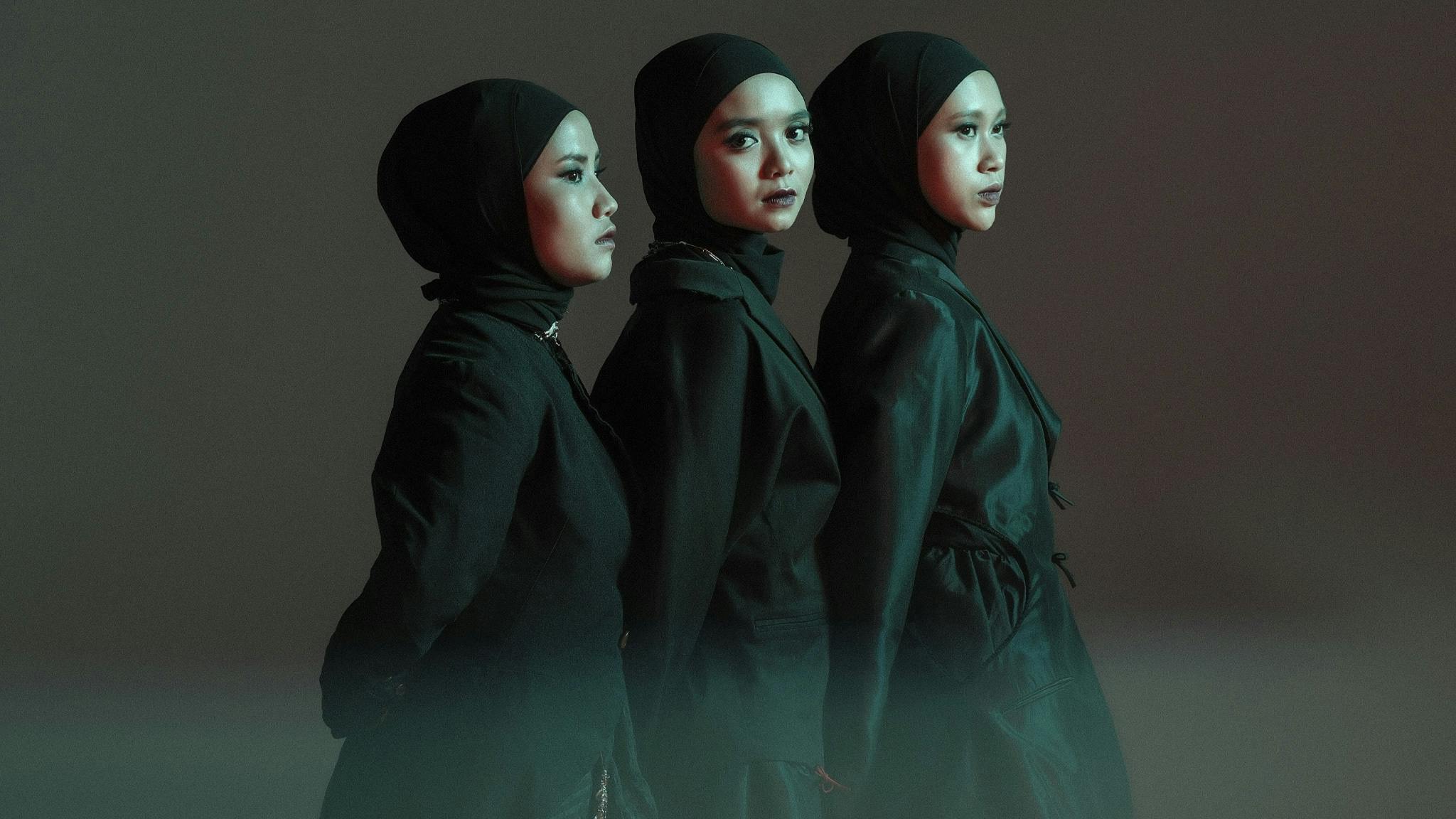Their one constant source of support has been Ahba Erza, who showed Marsya and Wati how to play guitar and bass respectively, assisted with lyrics and later became their manager. “Ahba is always by our side when bullying, terror and threats arise,” says Siti. “He was the only one who didn’t say we were wrong or we were a bad band, even anti-law.” This is no exaggeration – the unfortunate truth is that there are plenty of conservative naysayers in Voice Of Baceprot’s home nation who want them not to be noisy, but to be silent, simply because of who they are. At best, keyboard warriors have questioned why their music has to be political; at worst, it’s spiralled into torrents of online abuse and death threats. “At first, it was a bit hard for us,” continues Siti, “but we found that the most effective way [to fight back] was not stopping playing music, because that’s what they want. We believe that with time, we’ll prove that we weren’t wrong and what we do is not a crime.”
It means that the themes of protest in Voice Of Baceprot’s music have a heavier weight than other bands of their ilk. Indeed, one of their most successful songs on TikTok, God Allow Me (Please) To Play Music, is an emotional plea for the chance to speak freely and express themselves through music – ‘I’m not a criminal, I’m not the enemy,’ Marsya begs, ‘I just want to sing a song to show my soul.’ That song appears on their recently-released debut album Retas, alongside several others that were also written while they were in school – they even had its title in mind as far back as 2018. “It [reflects how] the songs on this album have managed to break away from the rigidity of standard music, music which says we have to do this or that,” says Marsya.
